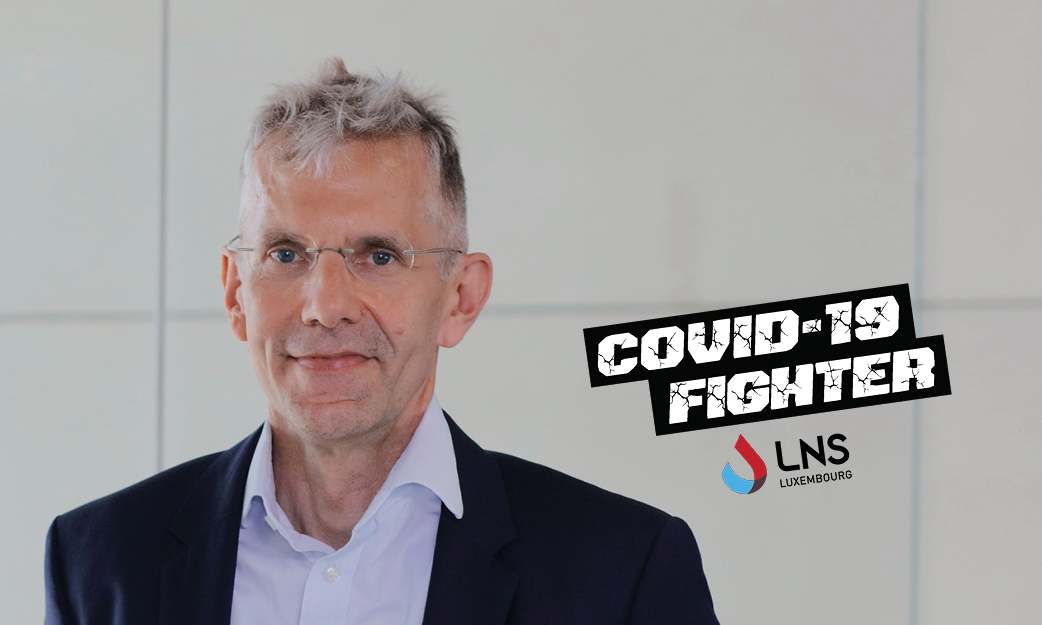- The Laboratory
- Organization
- Departments
- Jobs
- Analysis book
- Contact
- News
- Publications
- Download



First of all, in my eyes fighting COVID-19 is not a war. COVID-19 has no boundaries, and does not just affect individual countries. This is about human beings coming together, irrespective of nationality, and becoming a team that fights this virus. A single individual or country will not succeed.
I have always been interested in infectious diseases. Whilst in medical school I took some time off to coordinate and participate in a field study in Africa to develop immunology tests for the rapid diagnosis of major parasitic infections. This required scientific rigor but also the ability to manage complex and at times challenging situations in the field.
After University, I specialized in medical microbiology and was trained in the laboratory diagnosis of human pathogens. In parallel, I started a research program into microbes that kill patients with a weak immune system. At the time, very few people were looking into these and we made some important, fundamental discoveries about how they cause diseases.
I also worked in a large, multi-site hospital setting and academic environments in England. There I carried out patient-facing, front-line infection work. I paid visits and advised on management of patients in intensive care every day and did a lot of on-call work – I was available for advice during the night for many years. That is when I was faced with swine-flu, SARS, MERS-CoV and other outbreaks.
Over the years, I did a lot of academic work on infectious diseases and was responsible among others for initially running a microbiology department with 60 staff and then a large comprehensive laboratory system where 365 people worked. I therefore gained a lot of experience in how to manage relevant processes in medicine and how to transversally translate the laboratory result into meaningful clinical action that benefits the patient. I feel this background and experience have been useful when working at the LNS.
The LNS is a fantastic institution. It’s very diversified, and many of our departments or centers either directly or indirectly contribute to the fight against COVID-19. For me it is logical that a national lab of this size, relevance and impact should have a leading role.
As the LNS director, it is my role is to support the various departments in the LNS and make sure that they can contribute to the different aspects of fighting COVID-19. We need to ensure on the one hand that other services continue to operate and on the other that our staff remains safe.
It is crucial that we work together closely with all institutions involved, such as hospitals, government agencies and private sector laboratories. Since the LNS is also a research laboratory, we have responsibilities to support and conduct research activities that will help in the fight against the disease.
Every hurdle can be overcome. Our teams adapt to new situations very quickly and rise to the challenge. I have witnessed nothing but support and willingness to come together.
Seeing how people come together as teams, showing support regardless of whether they work directly at the laboratory or at home. I am very proud to have witnessed this.
For me, COVID-19 has shown once again that health is a key responsibility for any country. It is important that governments put systems into place that deliver the best possible care for people. This is what I will continue to stand and fight for together with our team.